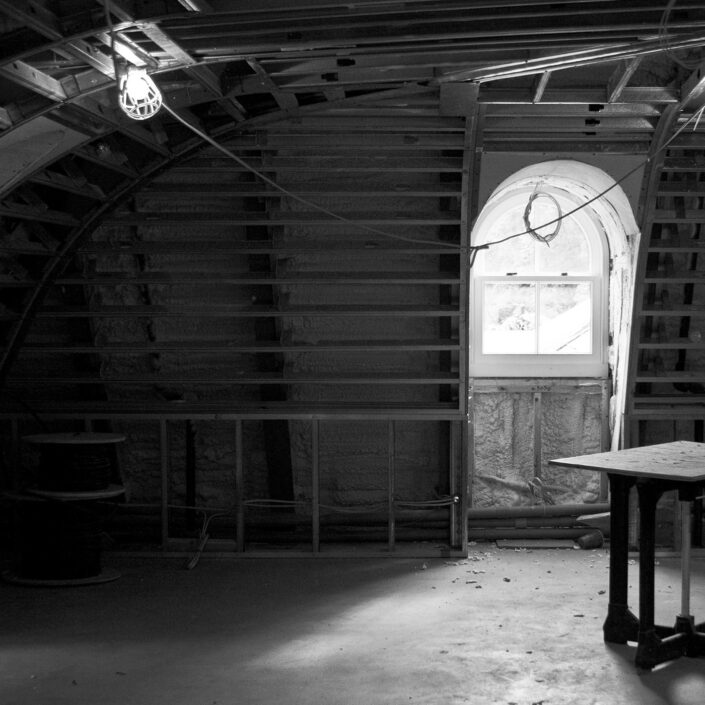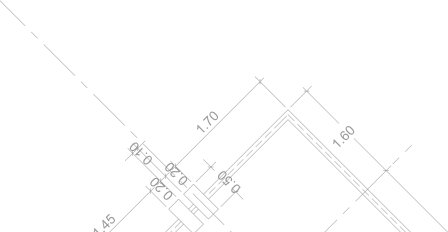

There is only “us”
You are building a one-of-a-kind space on a unique piece of property with a team of people that you choose to work with. Something unexpected will happen. Select a team you trust so that when it does, the team comes together to find a solution. There is no place for “us vs. them” on a high-performance team.
How do I select a custom home builder?
During the course of construction, you will have a series of homework assignments. Selecting a builder is one of your most important tasks. The problem is, there is no foolproof way of making the right choice. Ultimately, it comes down to trust. Do not get involved with a home builder you do not trust, regardless of how attractive the price is.
Trust alone is not enough, but it is the starting point. You also want experience, competence, service, and value for your money. Referrals are good, but they can be misleading. Some people just don’t know a good job from a bad one, and every builder, even a poor one, usually has at least a couple of decent jobs for referrals. It is best to visit some previous projects, to see the workmanship first hand. Ask questions of past clients. Don’t be shy. This is your hard earned money at stake. Ask your potential builder tough questions. No information should be withheld.
Why are so many builders and subcontractors evasive?
There is a language spoken by many people in the construction world that I call “Vaguese.” It is an interesting language where words and phrases are combined to create vague impressions. Sentences are constructed to avoid any personal responsibility. It is a defensive language used to shield individuals and companies from financial liability. Since almost every problem in construction comes down to who is going to pay for it, and often times there are gray areas and several entities to blame, many people in the industry learn to speak Vaguese or risk owning the repair bill. As a consumer, you should try to find a home builder who doesn’t speak this language, a home builder who is direct and honest. You should also consciously make sure that all of your communications are direct. If you make a mistake, admit it. Set the tone. Create a climate where you expect total honesty and you live by total honesty.
Should I competitively bid my project to several builders or negotiate with one builder?
There is no right way. I prefer negotiating with a builder whom I have researched thoroughly and believe to be reputable and trustworthy. Obviously, the danger with this method is that if your judgment is wrong, you could end up paying way too much for your project. Your home builder might be a great craftsman but overpriced. Your home builder might be very fair on pricing but incredibly inefficient, which could end up costing you more than dishonesty.
On paper, a competitive bid makes a lot of sense; however, in reality, it is intrinsically flawed. The bid is based on a set of plans which usually have mistakes and are generally incomplete. Each builder is calculating on a different level of quality and service, so bids are never apples to apples. Some builders bid low and make it up on extras. Some builders bid sloppily and make it up on crummy workmanship. Some builders scrutinize the plans for errors and omissions, areas that they can later exploit to their advantage. Sometimes you can win the competitive bid game, but you can also lose. As much as information seems freely available and at your fingertips, it is difficult to find out what things should cost – even simple sounding metrics like cost-per-square-foot can be misleading.
If you find a good builder whom you can trust, and he or she has a reputation for pleasing clients, being thorough, efficient, and fair on pricing, this is the builder you probably want.
How do I analyze competitive bids on home construction projects?
Let’s say you have three bids for $90,000, $100,000, and $110,000. The first thing you want to do is make sure the bids are as close to apples to apples as possible. The problem is that every home builder has his own way of estimating and may use different categories than his competitors. When the plans are given out to bid, an outline should be given to each builder, breaking down the job the same way. Each builder is then required to fill out the outline with his bid. Now you can compare the electrical price and the plumbing, etc. Overhead and profit or any other markups should also be called out separately.
Choosing a home builder should never be based on price alone, but the more clear information you can obtain about how the bid prices were reached, the better chance you have of making the right decision.
Should I insist on a fixed lump sum, or is it OK to have a time and materials contract?
Both systems are flawed in terms of cost. A cost-plus contract with an unethical or inefficient builder can be tragically costly. But even with a fixed-price, the cost can go up dramatically: latent conditions (ledge underground, termites in the wood, etc.) are usually not covered in a fixed price, nor are changes and extras. And fixed-price contracts usually do not provide the client visibility into costs.
This lack of transparency sets up the larger problem with fixed-price: it puts you and the home builder on opposite sides of the table. Every quality decision the builder makes costs more or less money, so while the price is fixed, the house is not, and the builder could be compromising the quality of the home. A cost-plus job creates more of a team atmosphere. A cost-plus contract may cost you more money, but you will be included in decisions that impact quality and time. Either way, be careful.




